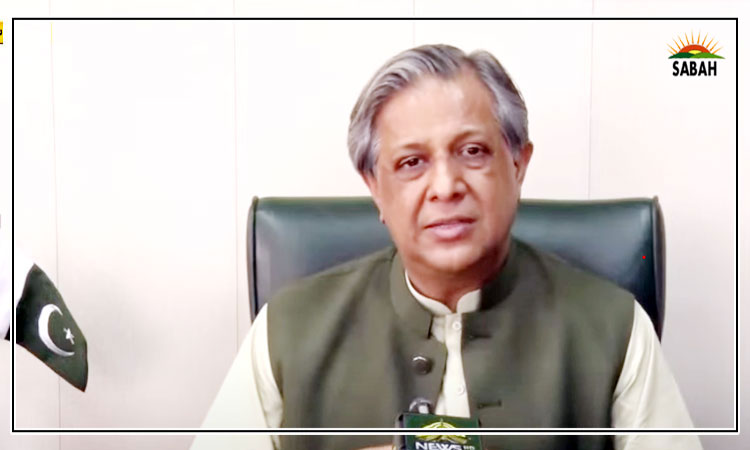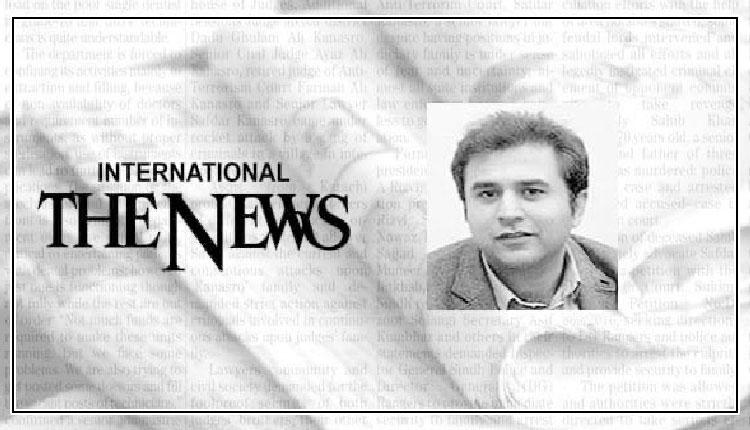Rule of men…Abuzar Salman Khan Niazi
Legendary Pakistani jurist, Justice Fazal Karim in his book Judicial Review of Public Actions writes, once Aristotle was asked what he prefers rule of law or the rule of an individual?
Aristotle, unequivocally responded, to invest the law then with authority is, it seems, to invest God and reasons only, to invest a man is to introduce a beast, as desire is something bestial, and even the best of men in authority are liable to be corrupted by passion.
A few weeks ago, the PTIs social media head Azhar Mashwani was abducted. Throughout his abduction, his whereabouts remained absolutely unknown. Finally, eight days after his disappearance, Mashwani returned home. Before the court of law, Mashwani recorded a very disturbing statement with regards to his ill-fated ordeal. The most bizarre and callous thing is that all this happened in the absence of any criminal complaint or registration of FIR against him.
Mashwanis is not the sole victim of such outrageous exploits. Various other members of the social media team of the PTI were also abducted and released in a similar manner. Such abductions, arbitrary arrests, non-registration of FIRs, humiliating interrogations, untraceable custody and torture of citizens (politicians, journalists and social media activists) has been rampant in Pakistan for decades. Nevertheless, the intensity of such encounters has increased manifold over the last few months. All this is, essentially, an uncomfortable presentation of an unaccountable regime where rule of law succumbs before the whimsical tendencies of men exercising impunity and power.
The social contract theory, proposed by Thomas Hobbes and later developed by various political scientists, says that a society without laws is a state of nature and a dreadful place to live in. In such a state, people act on their own whims where the strongest ensures the weak either perish or remain stifled. Principally, our constitution is a social contract signed by the people of Pakistan; its object is to create a body politic (state) which will protect the life and liberty of its signatories. However, that can only happen if the actions which adversely affect the rights of the citizens of Pakistan are supported by law. Hence, the basic edifice or foundation on which the superstructure of theory of social contract stands is the principle of rule of law.
English Professor Albert Ven Dicey gave the best conception of rule of law in his book Introduction to the Study of the Law of the Constitution. According to Dicey, no man is punishable or can be lawfully made to suffer unless he has violated the law. He further theorizes that there must be absolute supremacy or predominance of regular law over arbitrary power of the state. This was best elucidated by Lord Bingham as follows: If anyone you or I is to be penalized it must not be for breaking some rule dreamt up by an ingenious minister or official in order to convict us.
Under our constitutional scheme, Diceys rule of law conception is embodied in Article 4 of the constitution. By virtue of this, every person enjoys the protection of law and to be treated in accordance with law is his inalienable right. This right is like a protective shield guarding life and liberty of persons within Pakistan. Thus, any executive, action no matter how well-intentioned and bonafide, cannot hold ground unless it is supported by law. Justice Kaikaus whilst interpreting Article 4 in the Jamal Shah Case held: It prevents government from taking any action in this country for which there is no legal sanction. Therefore, to adhere to law is not a mere technicality rather it is a solemn obligation cast upon the government pursuant to Article 4 of the the constitution.
Likewise, Article 4 completely commands absence of arbitrary power meaning thereby, it envisages a government of limited and specified powers. Discretion, as Lord Mansfield observed, “means sound discretion guided by law, it must not be arbitrary, vague, and fanciful”. Where discretion is absolute, unguided, unstructured or based on passions, the weaker are bound to suffer. The first thing rule of law ensures is that it eliminates absolute discretion by confining it within clearly defined limits. If a decision is taken outside the prescribed limits, it is the antithesis of a decision taken in accordance with rule of law and is void.
Abduction, intimidation and violence is often resorted to so as to muzzle criticism. The abduction of Mashwani and various other social media activists, in the absence of any criminal complaint/FIR and non-production before the concerned magistrates, is an adequate reason to assert such a claim.
Unfortunately, such state adventures in effect suspend and put in abeyance the enjoyment of protection guaranteed under Article 4 of the constitution. If rule of law disappears and is replaced with the desires of powerful men, the existence of our very constitution becomes immaterial and irrelevant. Fundamentally, such state actions break our social contract and roll back the people of Pakistan back to a state of nature where the weak will always remain at the lone mercy of the arbitrary rule of powerful men.
Courtesy The News












